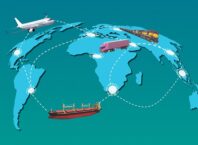The world today is a much smaller place than it was even 20 years ago. With continuous developments in technology and now widely accessible internet as well as rapid globalisation, companies are able to approach foreign markets with ease and trade internationally without the need of a physical presence in the chosen market abroad.
Although the way companies conduct business has changed significantly in the recent years, many aspects of consumer behaviour remain the same. One of the most significant factors, which can directly impact your customers’ purchasing decisions and habits, is the use of language.
A study by the European Commission & Common Sense Advisory has found that over 90% of customers feel more inclined to committing a purchase if the information about the service or product is available to them in their native language and always choose a website available to them in their language. Similarly, 47 % of those asked never buys an item if they cannot find key information about it in their mother tongue. Looking at those number, it becomes easy to realise just how significant language translation providers are in today’s business environment. Indeed, a rapidly growing number of companies and organisations, both large and from the SME sector, consider translation agencies as an essential business partner in today’s environment.
Often however, a business may not be entirely certain as to which materials to translate in order to increase not only sales, revenue and market share, but also customer satisfaction – which can nonetheless indirectly affect those aspects. This can be especially true for companies which do not have any previous experience working with a translation agency.
Although translation requirements may differ from sector to sector and business to business, there are some fundamentals which can be applied across the board.
Contents [show]
What should your business translate?
One of the key elements, which is applicable to every business approaching international markets and customers, is a professional translation of the website. In most cases, especially if the company lacks a physical presence in the foreign market, a website will be the initial point of contact between the organisation and the potential customer. Translating the online content into the native language of your chosen market(s) will allow visitors to fully understand what your brand stands for and what your offer is, developing trust for your business at the same time.
A simple text translation may not however be sufficient for some markets. Colours and images play an equally vital role in consumer behaviour, and so in order to fully adjust them for markets where local customs may affect how your brand is perceived, a website localisation may be necessary. This is an additional service which is usually offered by some of the leading translation agencies.
In addition to translating your company’s website, other marketing materials such as business cards, presentations, brochures or leaflets should be carefully translated by professional linguists who specialise in such translations. Interpreting such material into the market’s native language can be hugely beneficial as it allows the market to become familiar with your offer.
Other materials which your business should consider translating may include legal documents, such as terms & conditions, contracts or warranties. Allowing your customers and corporate partners to familiarise themselves with such documents in their native language can go a long way, especially in markets such as China or Japan, where the correct business etiquette plays an extremely important role.
Where to translate?
Translation services can be approached from a number of different angles. One of the most popular ways to translate documents is with the help of free translation software, such as google translate. Although the software was created with personal use in mind, such approach is especially popular amongst local SMEs as it helps to save time and money.
Working directly with a trustworthy professional translation services agency is yet another way to translate your business materials. A solution, which although involves budgeting, guarantees accuracy and reliability. In most cases, the materials will be translated by a native speaker of your target language, who is not only fluent in the language itself, but also understands the culture, customers and consumer behaviour of your potential customers. In a way – your materials will be translated by a potential client.
Choosing the right translation agency can be a challenging task. If you’re unsure as to which company to work with, it’s always a good idea to ask for a free translation sample before committing and check the reviews left by other customers to get the general impression.
The decision as to which approach to take may depend on your general approach to business. Free online tools have evolved significantly over the recent years. They do not however guarantee accuracy and reliability. Although free to use in the short term, may prove to be extremely costly in the long run in terms of your company’s reputation and image. Working with a translation agency will involve investing money initially, but guarantees accuracy and careful localisation of your content, which in the long term, will benefit your company greatly.













Nice points you have here, a good translations agency is essential in spreading your business globally.